What to Feed Baby Ducks – What’s the Best Food For Baby Ducks?
Welcome! This article contains affiliate links, meaning I get a commission if you decide to make a purchase through my links, at no extra cost to you.
Ducklings, like their adult counterparts, are omnivores from birth, but determining what baby ducks can and cannot eat can be tricky since there are so many feeds and treats to choose from. So, what do you feed ducklings, and what should you avoid?
Baby ducks eat insects and many plants, including fruits, leaves, vegetables, and legumes, in the wild. However, they need a lot of protein and some vitamins, such as niacin and riboflavin, early in life to ensure they develop without any health issues.
In this article, we’ll discuss what you should and shouldn’t feed baby ducks. We’ll go over the changing nutritional requirements of ducklings, tell you about the best things to feed baby ducks and give you a list of things you should never offer ducklings.
What Do Baby Ducks Eat?
Ducklings are also surprisingly hardy, especially compared to baby chicks which are liable to die at the drop of a hat.
Ducklings are a bit tougher than chicks but also a little fussier when it comes to their diet. It won’t look like it when you put the feed down for them. They vacuum it up at a rate almost faster than the speed of light!
Unbeknownst to them, they also need specific vitamins and, initially, a diet that contains 20% protein.
Wild baby ducks eat many different bugs and plants. Although ducklings are generally good at foraging for food, it is best to offer them duck starter feed or chick starter feed. Whatever you feed them must contain a significant amount of niacin, protein, and riboflavin.
Let’s get into the details and talk about what to feed ducklings at different stages of their lives, what to look for in duck feed, and what to avoid.
Feeding Baby Ducks at Every Stage of Development
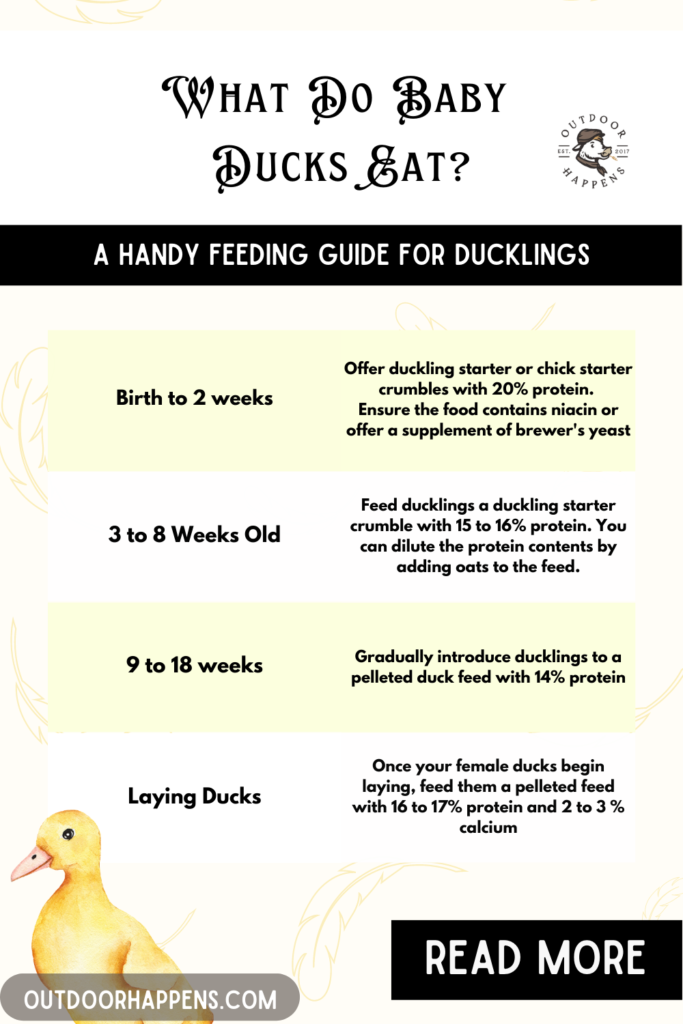
As ducks mature, they need different amounts of specific nutrients. Most importantly, baby ducks need to eat more niacin (vitamin B3) than chickens, chicks, and adult ducks. Baby ducks also need more protein and riboflavin when they are young.
It’s essential to ensure that your duck starter has all the nutrients your ducklings need to survive and develop strong bones, feathers, beaks, and feet. Otherwise, you might not get to watch your ducklings grow up.
It would be best to put out a duckling starter crumble as soon as your ducklings hatch. This starter should contain around 20 percent protein, and every serving of the feed should have around 10 mg of niacin. Add more niacin to your ducklings’ feed or water supply if you use chick starter crumbles.
The duckling starter feed you choose should be a good option until your ducklings are around three weeks old. At that point, switch to a grower feed or start ‘diluting’ the protein level in your starter with rolled oats.
Once your ducks start laying eggs, you can move them to a layer feed with additional calcium.
So, what kind of starter feeds are best, and what should you look for in a duckling feed? Let’s talk about it.
What Is the Best Food for Baby Ducks?
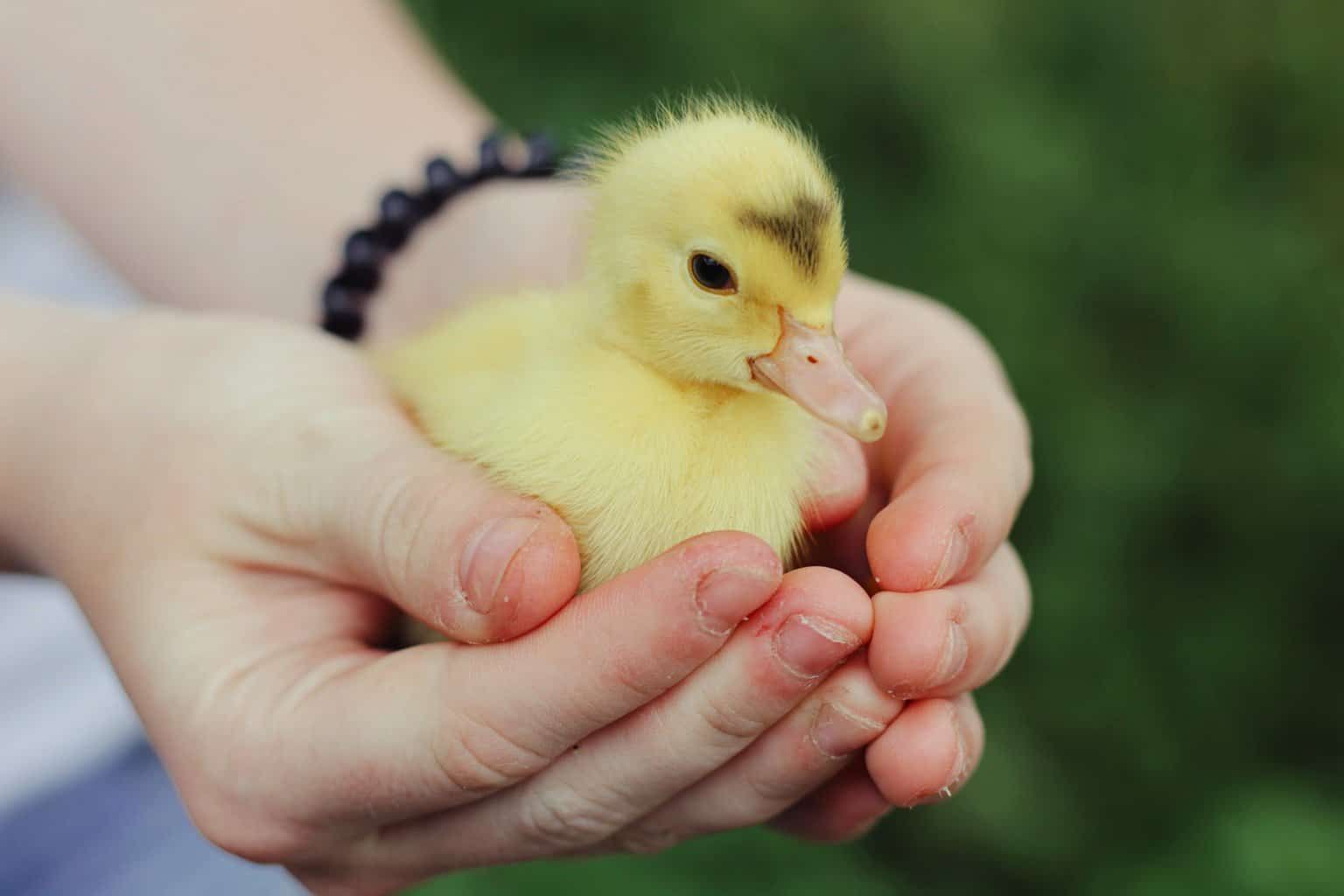
Baby ducks aren’t especially fussy eaters and will happily tuck into your adult duck food, but this often fails to give them the nutrition they need to grow into healthy adults.
Specialized duck starter feed or crumbles, like this one from Manna Pro, is the best food for baby ducks. You should offer ducklings non-medicated feed made just for baby ducks that doesn’t contain any potentially harmful antibiotics.
There are some multi-purpose feeds around, like Purina’s duck feed pellets which are “formulated to meet the niacin requirements of growing and laying ducks” and contain both probiotics and prebiotics. These feeds are also fantastic options.
During the first week of life, baby ducks need to eat extra protein and niacin. That’s why a duck starter feed is better than a chick starter feed.
Still, you can use a chick starter feed. However, if you do go this route, you’ll need to supplement the diet with riboflavin and niacin to create a balanced diet. Niacin deficiency is a common problem with baby ducks and can restrict growth and development.
To learn more about brewer’s yeast as a nutritional supplement for ducks, you may want to read our other article, Brewers Yeast for Ducks – Prevent Niacin Deficiency With Brewers Yeast.
It may now sound like you need a degree in nutrition to raise a baby duckling successfully, but that’s not the case.
Just boost the diet with brewer’s yeast, adding “1.5 tablespoons of brewer’s yeast into each cup of feed,” Your baby ducklings will thrive, getting all the riboflavin, niacin, and other B-complex vitamins they need.
Here are our go-to duckling feeds, both of which contain enough protein, riboflavin, and niacin for ducklings:
How Much Food Should You Give Baby Ducks?
You should give baby ducks open, 24/7 access to food. Ducklings digest their food rapidly, meaning they will get hungry every few hours. Leaving their food and a fresh supply of water out will ensure that they get the nutrients they need precisely when they need them.
You should keep your ducklings’ food out and topped off all day and night, every day, until your baby ducks are around three weeks old.
Inspect the dish if there’s any uneaten food when you come to top it off. If there’s any debris or dirt in the leftover food, toss it into your compost heap and freshen the bowl. Ducks are very sensitive to pathogens such as mold, so it’s better to start over fresh if anything could have gone sour.
You can keep out the food after that point, but ducklings should be ready to eat less when they reach adolescence and stop growing so quickly.
What Treats Can You Give Baby Ducks?
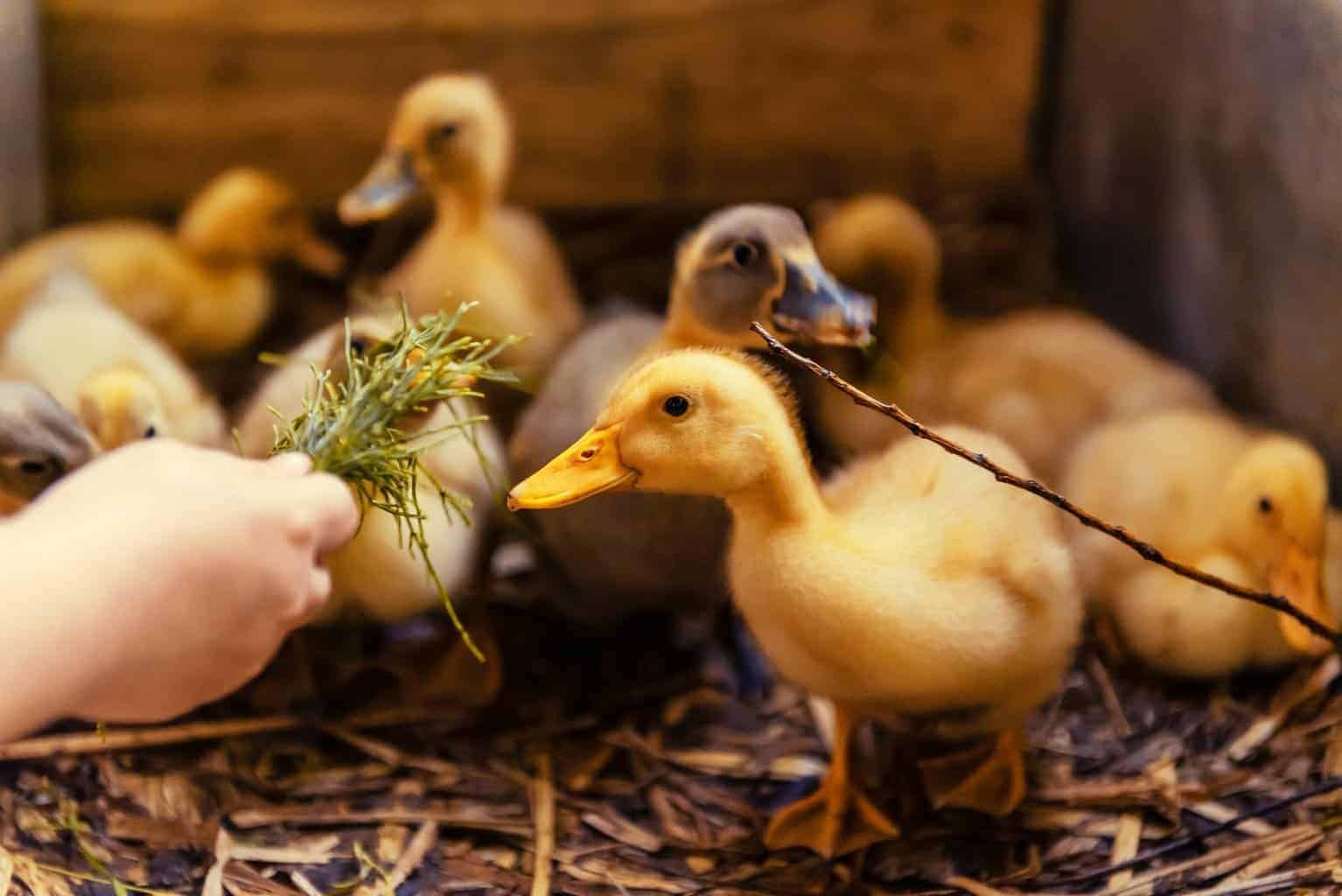
To give your baby ducks a well-rounded diet, you can add the occasional treat to their meals. Up to 10% of their total food consumption can be made of fresh food like tasty fruits and leafy greens, bugs, and worms.
What Fruits Are Safe to Feed to Baby Ducks?
Before feeding your ducklings any fruits, remove the pips and stones to prevent choking. If the fruits are large, mash them up to make them easier to digest.
Fruits your baby ducks will thrive on include:
- Apples
- Bananas (but not the peel)
- Berries like blueberries, raspberries, and strawberries
- Cherries
- Pears
- Tomatoes (only the flesh, as the other parts of the plant are toxic)
Learn how to grow these fruits yourself in a food forest!
What Vegetables Are Safe to Feed to Baby Ducks?
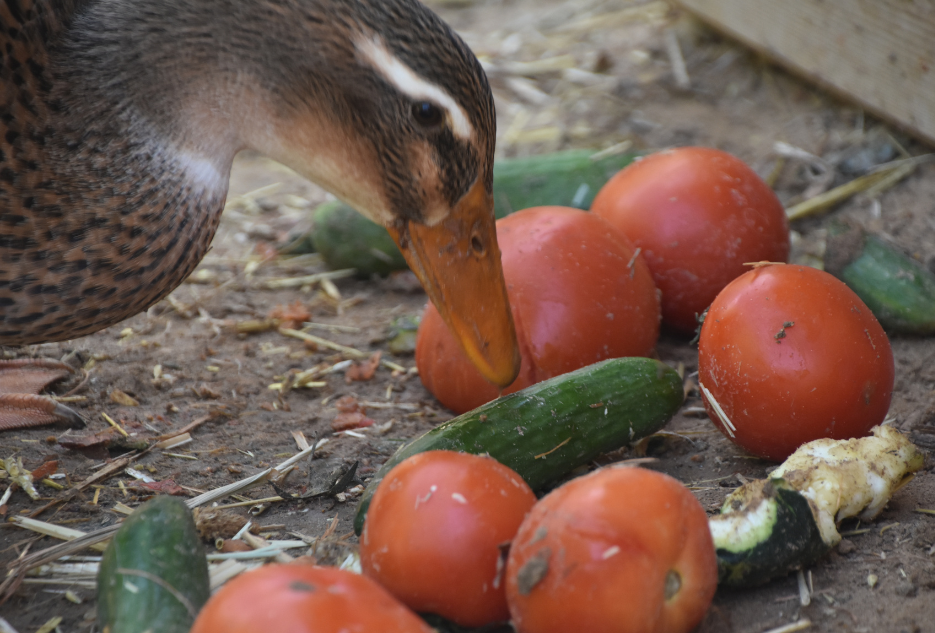
Ducklings enjoy green, leafy vegetables and gobble them up either raw or cooked. It’s best to tear them into more manageable pieces, as a large lettuce leaf could flatten a tiny duckling!
Vegetables, such as those listed below, boost the calcium content and provide a range of nutritional benefits and vitamins:
- Cucumber
- Dandelion greens (grow your own dandelions!)
- Kale
- Lettuce (but not in excess, as this can cause diarrhea)
- Radish greens
- Peas
- Swiss chard (but not spinach)
- Turnip greens (grow your own turnips!)
- Grass
Other Great Treats for Baby Ducks
You could also give your baby ducks other healthy treats like these:
- Beetles
- Crickets
- Fly larvae
- Black soldier flies
- Eggs – boiled and diced
- Mealworms
- Snails
- Shrimp
Bugs are often a duck’s favorite treats. You can usually find things like crickets and mealworms at a feed supply store, but you may have to look for some of the other insects at a pet store.
However, many of these insects are probably already in your garden, so feel free to use your ducklings and ducks as a free pest control team! Ducks make great garden companions, and they’ll keep the snails and beetles from taking over your crops.
What Should You Not Feed Ducklings?

Most duck owners and experts agree that you should never feed ducklings a medicated feed, whether it’s an adult pellet or starter crumble. Ducks may over-medicate themselves when you offer them medicated feeds, which could ultimately result in health issues and even death.
Recent research suggests baby ducks won’t accidentally over-medicate themselves if they eat a medicated feed. However, it’s always better to err on the side of caution, especially when a little life is at stake.
Surprisingly enough, bread and other starchy snacks are bad for baby ducks as they can lead to a condition known as Angel Wing. Angel wing is a condition where ducks develop a permanently twisted wing joint. It happens when ducks consume “an excess of calories or protein.”
What Foods Are Toxic to Ducklings?
Some foods are toxic for baby ducklings, including:
- Citrus fruits – these can disrupt a duckling’s ability to absorb calcium
- Potatoes
- Green or unripe tomatoes
- Purple eggplant
- Dried, uncooked beans
- Anything with mold or mildew on it – if you wouldn’t eat it, don’t feed it to your ducklings!
- Foods treated with any possible pesticides
Offering Water to Ducklings
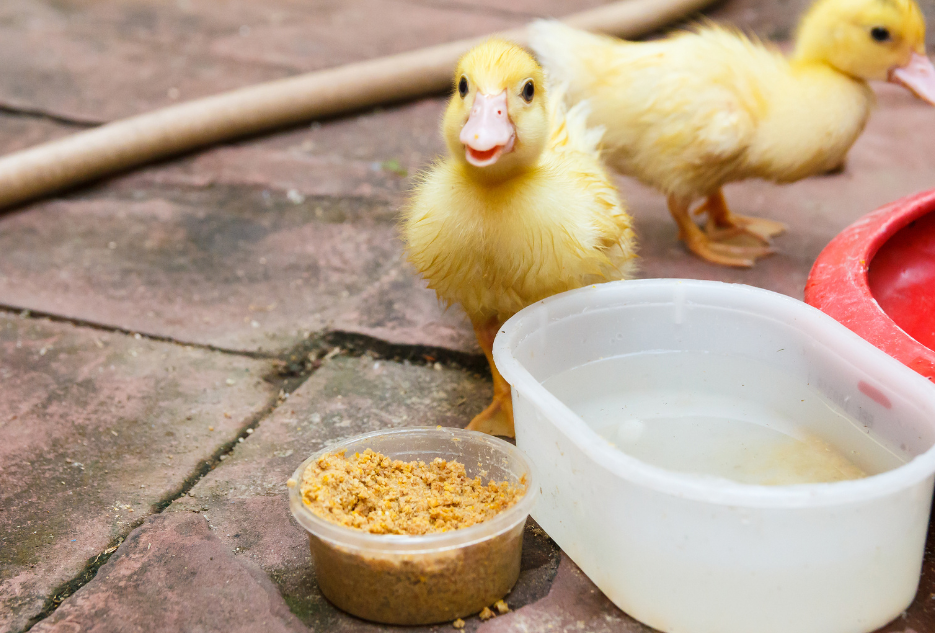
Baby ducks take to eating like, well, a duck to water, but they also need plenty of H²0 if they’re to grow up big and strong.
Whether we’re talking about ducklings or mature ducks, these birds need a lot of drinking water. Adult ducks can drink up to half a gallon of water a day, and even baby ducks need considerably more than a chick of the same age.
We all know that ducks like swimming, but even before they’re ready to take the plunge – at four weeks – baby ducks need water to help them swallow and digest.
Ducks don’t have teeth as such, but the spatulate shape of their bills helps them crush and “filter food from water, sand, or mud.” Because of this, they use water to help digestion, taking a mouthful of food and swishing it around with water. So, you should never give baby ducks food without water.
Ducklings, like adult ducks, don’t have effective tear ducts either, so they need water to clean their eyes and keep them moist. Similarly, without access to clean water, dirt can build up in their nostrils, causing blockages that can lead to “respiratory problems or chronic sinusitis.”
So, keep the water flowing and freshen it up at least once daily! If you want to help your ducklings digest their food, you can also scatter their treats on water in a shallow dish. That way, when they scoop up the food, they’ll automatically get a nice gulp of H²0, too.
Can Baby Ducks Swim?

To ducklings, water is life! They love it, and whether they’re drinking it or playing in it, they particularly love making a mess. With very young baby ducks, however, you need to be cautious.
Newborn ducklings and babies up to around four weeks of age may drown if you give them access to a water source that is too deep.
Not only is drowning “a major cause of duckling deaths,” for the first few weeks of their lives, “ducklings have not yet begun to produce the oil that makes them waterproof. That means ducklings don’t float for the first few weeks of their lives.
Additionally, water can lower a duckling’s body temperature to a dangerously low level, potentially causing illness or, in the worst cases, death.
So, your baby ducks need access to water deep enough for them to submerge their bills in but not deep enough for them to drown in. The solution?
A chicken waterer can work, although many are designed for chickens rather than ducks, as the name suggests. Many of them are too small for your baby ducks’ stubby bills.
We use an old tractor tire for our Indian runner ducks, but then again, we don’t have any ducklings to worry about.
An automated waterer is a smarter option, especially if you’ve got baby ducks waddling around. Otherwise, opt for a dish of water that is shallow enough for them to step out of.
Here's an excellent watering station if you're worried about your birds going without water! This 7-gallon automatic waterer has an easy-access, wide-mouth opening to make sure your chickens and ducks get comfortable access to plenty of clean water. The clear container makes it easy to see how much water remains inside. And - it has a solid handle so you can move it around your yard without stress.
Ducks Become Part of the Family
Baby ducks are undeniably cute but don’t stay that way for long. So enjoy playing around with your little yellow balls of fluff while you can!
Give them treats, monitor their first swimming experiences, and get to know them. Ducks live for up to 10 to 12 years, so they’ll become a part of your family, especially if you give them the best start in life with a good starter crumble and a dose or two of brewer’s yeast.
They may be rather on the messy side, splashing water around and laying eggs in the mud, but they more than make up for it, providing your homestead with plenty of amusement, friendship, eggs, and even meat, if you can bear to part with them.
More Reading on Raising Ducks and Ducklings:

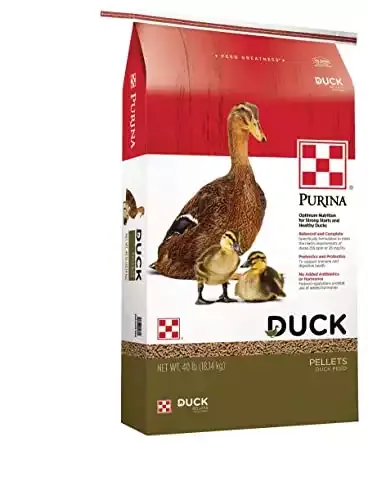
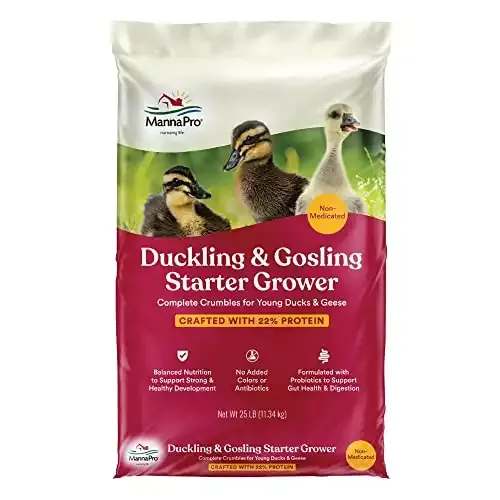
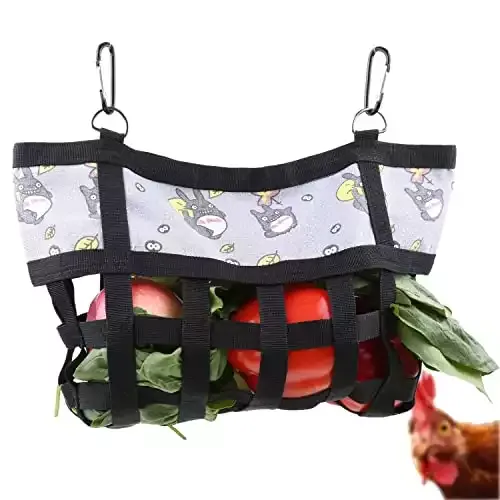
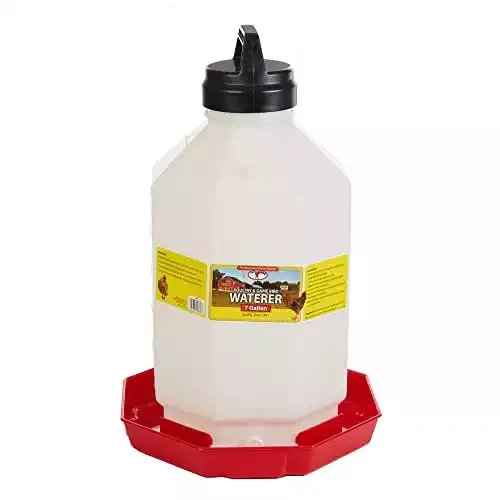
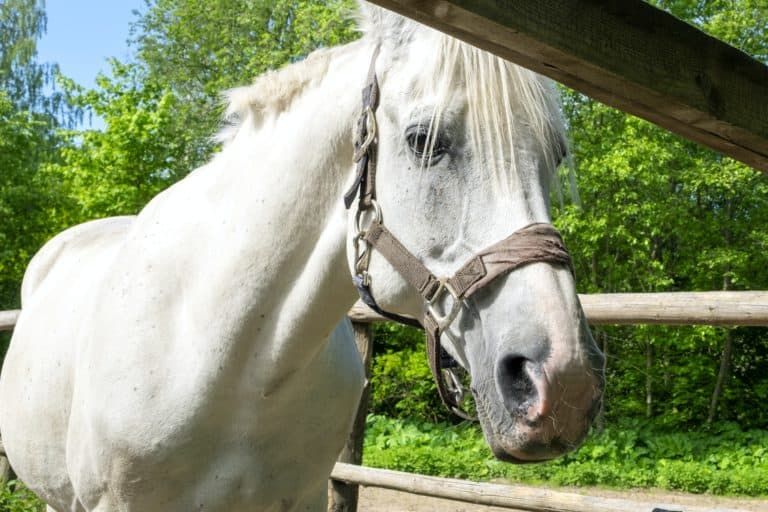
![What to Feed Squirrels In Backyard [Food Guide + How to Attract Squirrels!]](https://69be7209.flyingcdn.com/wp-content/uploads/2019/10/eastern-grey-squirrel-768x512.jpg)
![9 Homemade Treats for Chickens [Super Easy DIY Recipes!]](https://69be7209.flyingcdn.com/wp-content/uploads/2021/10/easy-chicken-treats-diy-768x511.jpg)
![44 Free Chicken Coop Plans [Easy DIY Ideas You Can Actually Make!]](https://69be7209.flyingcdn.com/wp-content/uploads/2020/12/chickens-going-to-roost-768x512.jpg)
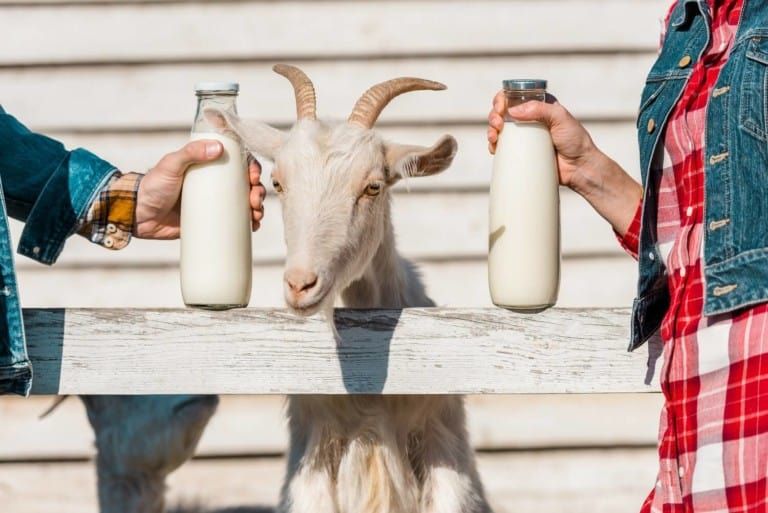
![How Much Does a Bale of Hay Weigh [Round vs Square Bales]](https://69be7209.flyingcdn.com/wp-content/uploads/2022/01/hay-bale-in-italian-village-rural-old-country-768x512.jpg)